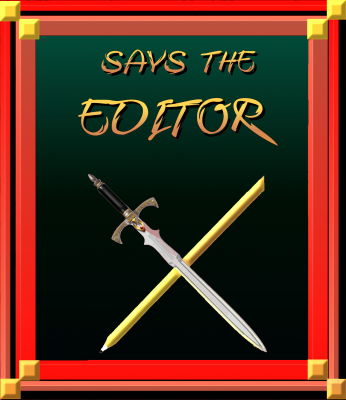May 13, 2021
 So I wrote a brutal, scathing review of a book I attempted to read a few weeks ago.
So I wrote a brutal, scathing review of a book I attempted to read a few weeks ago.
Doesn’t matter what book.
And yes, I am one of those awful, horrible authors/industry professionals who leaves scathing reviews. That’s another topic for another time.
Today, though, I want to talk about the way it struck me that if this book review were actually an edit, how different my approach to it would be. Oh, I’d still have hated the draft handed to me, assuming this published book was the final draft — and assuming that earlier versions were even more problematic.
But there’s a difference when you’re working with an author and when you’re reading and reviewing a book once it’s been published. A big, huge difference, in fact.
The reason is that when I’m editing, it’s a time to identify all these problems, and to work with the author to fix them. Hey, this wording has a really sexual connotation to it. Did you realize you’d done that? Hey, let’s take a look at the main character a little bit. She’s got a ton of self-loathing, and look how it’s operating. Are you seeing how she undermines herself here? How about there?
And one of my favorites, which I do use fairly often: Believe it or not, the story is stronger when you start on page 36. Look at all the backstory in the first 35 pages! What’s the conflict in that opening? How does this hook the reader when they get all this information about a character they haven’t made an emotional connection to? Keep your eyes open because as I see spots for all this backstory to come out, I’ll point them out. It’s good that you know so much about your characters; you should always know more than shows up on the page…
It’s so much more pleasant to catch these issues in the editorial stage.
Stop for a second and think about it. The editorial stage is where you get to pause and make things better. To catch these errors that really don’t belong in a published book.
But in a review? Well, that’s where people like me get frustrated. Because we can see the potential for the book, if only the author had been able to work with someone else who saw that same potential. Who had the experience and time to put into catching and fixing these problems.
So bear in mind that if you are thinking of working with me as your editor and you come across one of my reviews, I’m not like that in the editorial process. Ugh. Absolutely not. Because the challenge in the editing stage is to find the problems and help you fix them.
When the book’s published and out of our hands?
It’s too late then. And all we can do is rant in frustration at the lost potential for this poor book. And that lost potential, my friends, is a travesty.
Give yourself the gift of time, if you are able. Find the best editors you can, people who can bring out the best in your work of fiction. No one wants to read a bad book. No one should have to.